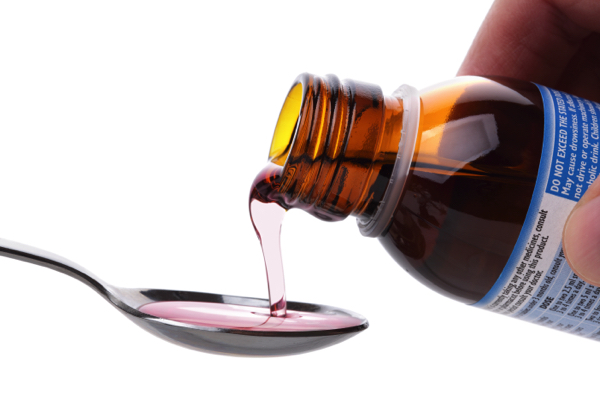Nationwide cough syrup recall alert: Microbial contamination in children’s medication sparks health warnings
- Little Remedies Honey Cough Syrup recalled nationwide due to Bacillus cereus contamination.
- Five lots affected (0039, 0545, 0640, 0450, 1198), with expiration dates from November 2025 to December 2026.
- Symptoms include nausea, vomiting, diarrhea and severe cases can be life-threatening.
- Consumers are urged to stop using it immediately and contact manufacturers for refunds.
- Part of a recent spike in FDA recalls is linked to bacterial or fungal contamination.
On June 17, Medtech Products Inc. announced a voluntary nationwide recall of five lots of Little Remedies® Honey Cough Syrup due to microbial contamination harmful to children. The recall, prompted by the detection of Bacillus cereus bacteria and loss of shelf-stability, affects syrups distributed between December 14, 2022, and June 4, 2025. The FDA issued an urgent warning to parents and caregivers to cease use of the medication immediately, as contamination can lead to severe gastrointestinal illness and, in rare cases, death.
Manufacturer issues voluntary recall over bacterial threat
Medtech Products Inc. identified the contamination during routine quality checks, prompting the recall of five specific lots of the syrup (lot numbers 0039, 0545, 0640, 0450 and 1198). Each lot has distinct expiration dates ranging from November 2025 to December 2026. The 4-ounce amber bottles are labeled with the Universal Product Code 7-56184-10737-9, and lot codes are printed on both the bottle and its carton. The FDA clarified that only the Honey Cough Syrup is impacted, with other Little Remedies products unaffected.
To date, no severe illnesses or fatalities have been reported, but the agency emphasized that healthy individuals may experience cramping, vomiting, or diarrhea within hours of exposure. Elderly, immune-compromised, or very young patients risk more severe complications.
Health risks of Bacillus cereus infection
The bacteria Bacillus cereus can produce toxins associated with two distinct foodborne illnesses. The first causes rapid-onset gastrointestinal symptoms (nausea, vomiting) within 1-6 hours, while the second leads to prolonged symptoms like diarrhea starting 8-16 hours post-ingestion. Though such illnesses are often self-limiting, high-dose exposure may trigger systemic infections that require hospitalization.
The bacteria naturally occur in soil and foodstuffs but can thrive under improper handling or storage. The CDC notes it is a common cause of food poisoning, particularly in grains and rice.
Consumer instructions and refund process
The FDA urges consumers to discard contaminated bottles immediately or return them to pharmacies. Refunds can be processed by contacting Medtech via its website or toll-free number (800) 754-8853. Those who used the product and exhibit symptoms are advised to seek medical care promptly, though no reported cases have reached critical stages thus far.
Recent surge in contamination-related recalls highlights regulatory scrutiny
This recall follows a wave of product withdrawals in early 2025 due to microbial contamination. In
June alone, the FDA announced:
- Bornstein Seafoods recalled shrimp contaminated with Listeria monocytogenes, a pathogen dangerous for pregnant individuals and immunocompromised people.
- August Egg Company removed millions of eggs over Salmonella fears.
- Church & Dwight Co. pulled Zicam nasal swabs contaminated with fungus.
These cases underscore concerns about hygiene practices in manufacturing and distribution chains. Public health experts stress the need for vigilance amid growing reliance on over-the-counter medications and processed foods.
A call for vigilance in pharmaceutical safety
While the Little Remedies recall remains voluntary and unaccompanied by confirmed illnesses, it serves as a stark reminder of pharmaceutical safety risks. Epox Safety, a product-recall tracking firm, reports a 27% rise in FDA adverse event reports for children’s medications since 2021.
As consumers navigate these alerts, experts recommend cross-referencing product information with FDA updates (www.fda.gov) and consulting pediatricians before administering remedies. “This isn’t just about recalls—it’s about fostering a culture where transparency and accountability are prioritized over profit,” said Dr. Emily Nguyen, a pediatric infectious disease specialist.
A nationwide call to action for health awareness
The Little Remedies recall emphasizes the importance of staying informed about product recalls and adhering to safety guidelines. As regulators intensify inspections, families are urged to check their medicine cabinets and abide by manufacturer instructions. While fears of contamination are valid, proactive steps can mitigate risks—ensuring children’s health remains a priority in an increasingly complex healthcare landscape.
Sources for this article include:
TheEpochTimes.com
FDA.gov
CBSNews.com
ABC7NY.com
Read full article here


